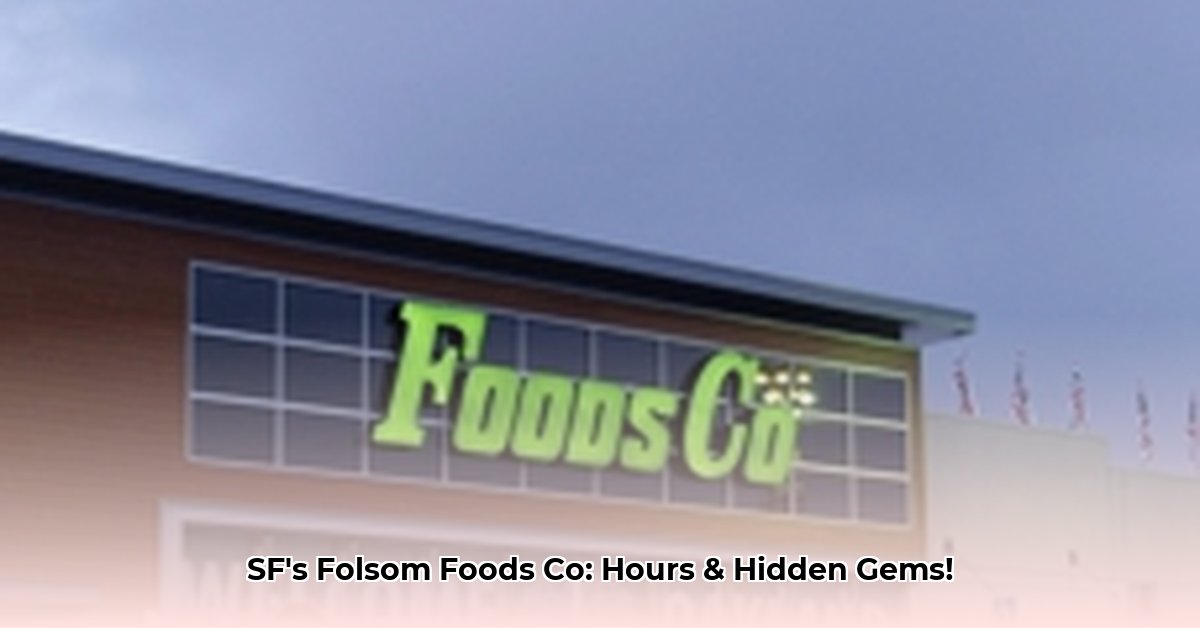
Daily Operating Hours
The Foods Co store located in San Francisco's Folsom district maintains consistent daily hours of operation: 6 AM to 10 PM. This extensive daily operating schedule, totaling 16 hours, suggests a commitment to customer accessibility. Are these hours optimal for maximizing revenue? Further data analysis is required to definitively answer this question. For more information on the location, visit the store's website.
Data Limitations and Analysis Challenges
This article provides a concise overview of the Foods Co San Francisco Folsom store's operating hours. However, due to limited data availability, a comprehensive analysis of store performance and operational efficiency is not possible. While the extensive daily hours suggest a customer-centric approach, crucial information such as sales figures, customer demographics, and inventory management practices remain unavailable. This data scarcity presents significant challenges for a thorough assessment. How can we accurately gauge the store's success without access to key performance indicators?
Pivotal Points:
- Limited Data: The primary constraint is the lack of detailed operational data beyond daily operating hours.
- Operational Focus: The analysis centers on observable operational aspects like store hours, inferring potential implications without quantifiable metrics.
- Actionable Insights: The article highlights strategies for improved data collection and operational efficiency to address the current data limitations.
Stakeholder Needs and Information Gaps
The absence of comprehensive data impacts various stakeholders:
- Foods Co Management: Requires sales data, customer demographics, and inventory levels for informed decision-making regarding store performance and resource allocation. Without this information, strategic planning becomes significantly more difficult.
- Customers: Benefit from readily accessible information on product availability, special offers, and customer reviews to facilitate informed purchasing decisions. More transparency helps build trust and loyalty.
- Competitor Businesses: Need comparable sales data and market share information to benchmark performance, develop competitive strategies, and understand market trends. Lack of transparency hinders competitive analysis.
Improving Data Collection and Operational Efficiency
To enhance decision-making and improve store performance, Foods Co should implement the following strategies:
- Enhanced Data Collection: Implement robust data collection systems to track key metrics, including daily sales figures, customer feedback via surveys or online reviews, and inventory levels. This will provide the foundation for informed decisions.
- Improved Online Presence: Develop a user-friendly website or mobile app to improve customer engagement and transparency. This would allow customers to check product availability, access special offers, and provide feedback.
- Community Engagement: Foster stronger community relationships through local events and initiatives. Building better relationships with the local community can lead to increased customer loyalty and provide valuable qualitative data relating to consumer preferences and satisfaction.
These improvements would benefit all stakeholders, creating a more transparent and efficient operation. The lack of comprehensive data currently hinders a complete analysis, but the implementation of these measures will allow for more accurate assessments of store performance in the future. The path to improvement begins with better information.